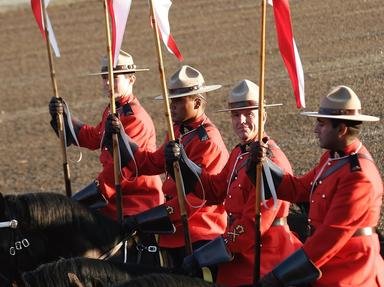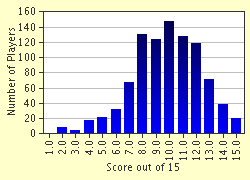Quiz Answer Key and Fun Facts
1. Who was the Italian explorer, who sailed for King Henry VII of England, and was responsible for discovering present day Newfoundland?
2. Who was the explorer that made three successful voyages to Canada in the 1530s?
3. What drew early Europeans to Canada?
4. Who was the man responsible for leading the rebellion in "Upper Canada" during the year 1837?
5. Who was the heroine in the war of 1812 and why?
6. Who was the English commander during the Battle on the Plains of Abraham?
7. When did Canada acquire the status of a Dominion with substantial autonomy within the British Empire?
8. Which of the following became a province first?
9. What does the word "Metis" mean?
10. What were the names of the people who were a)loyal to the British crown, and b)those who weren't?
11. Was Samuel de Champlain known as "The Father of New France"?
12. Was Cornelius Van Horne responsible for the completion of the Canadian Pacific Railway?
13. Which of the following tribes is likely to have been sedentary?
14. What were most of the 15th and 16th century explorers who discovered Canada looking for?
15. What was the upper class group in "Lower Canada" refered to as?
Source: Author
dancing_sun_star
This quiz was reviewed by FunTrivia editor
bloomsby before going online.
Any errors found in FunTrivia content are routinely corrected through our feedback system.

